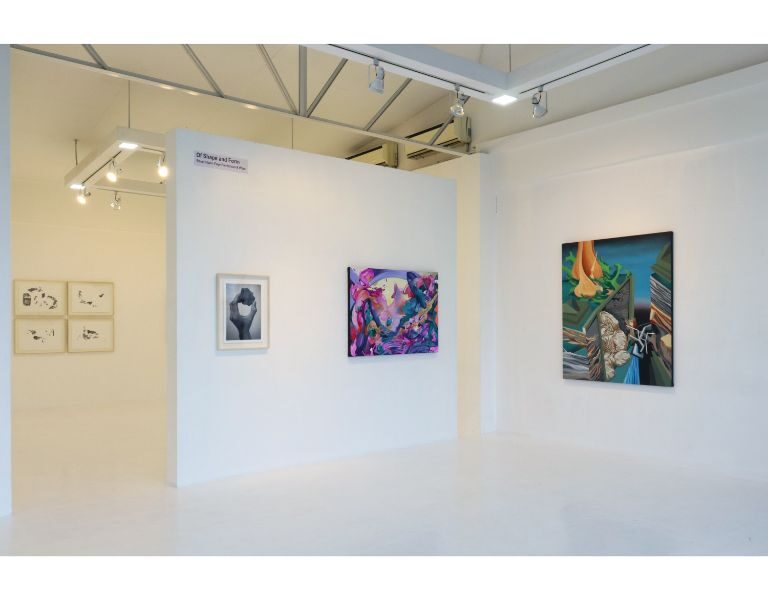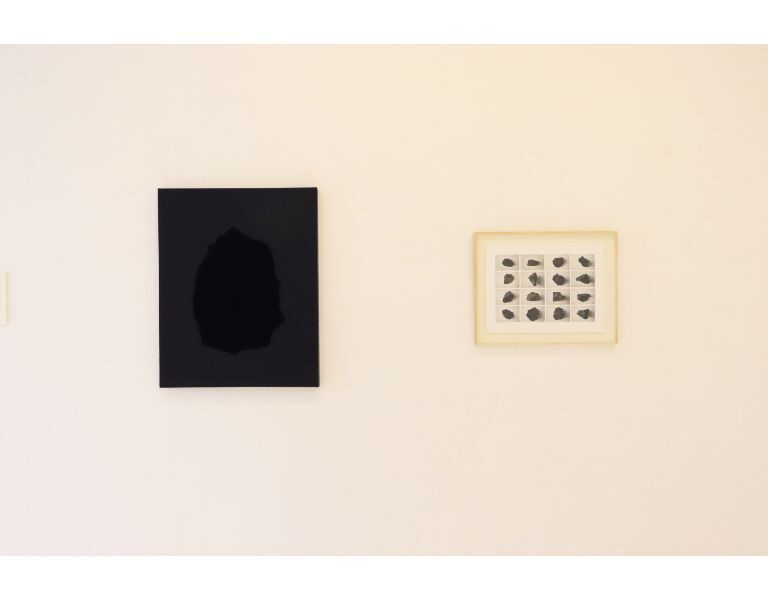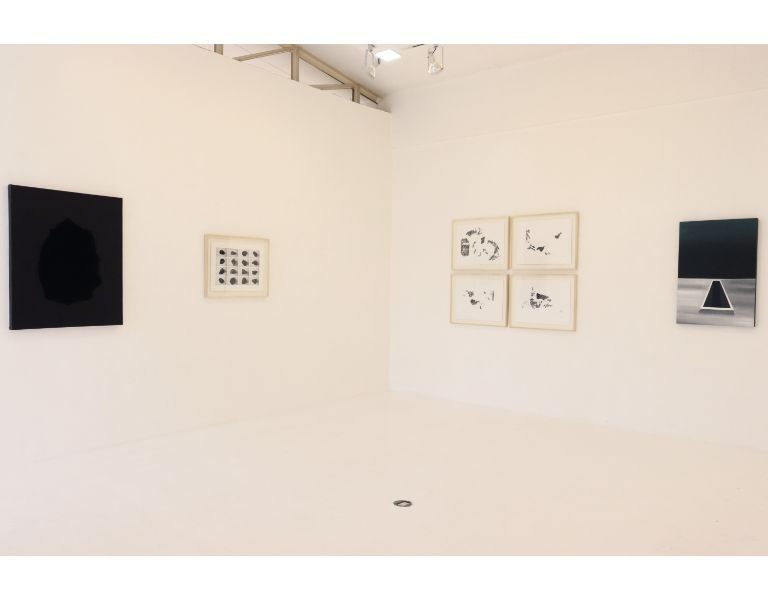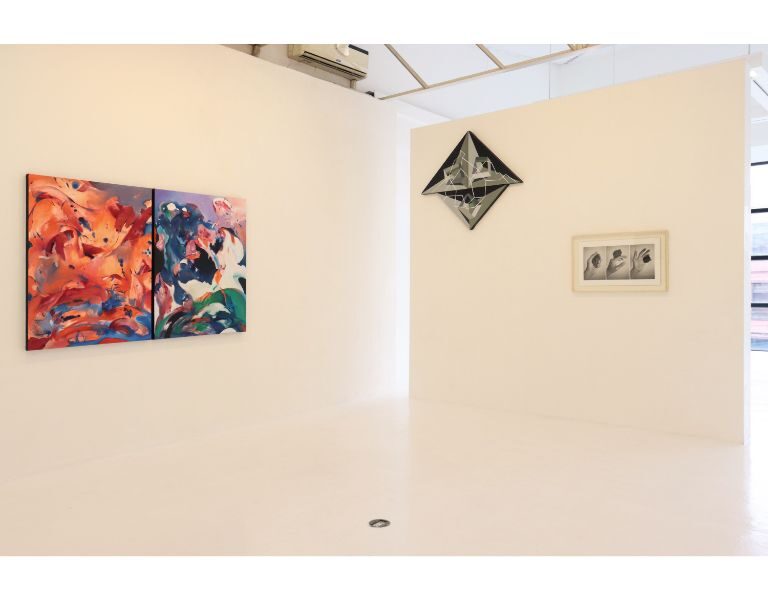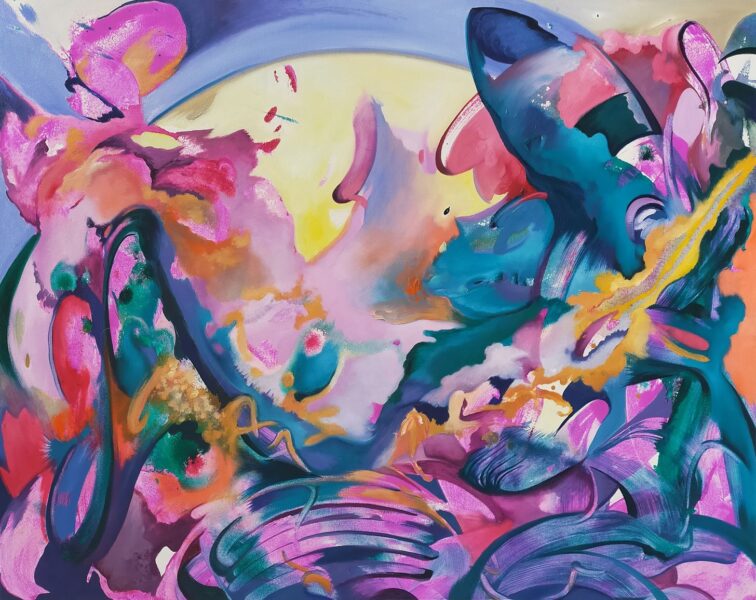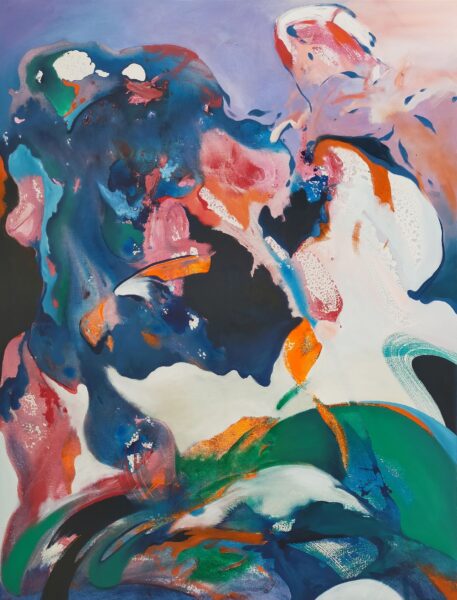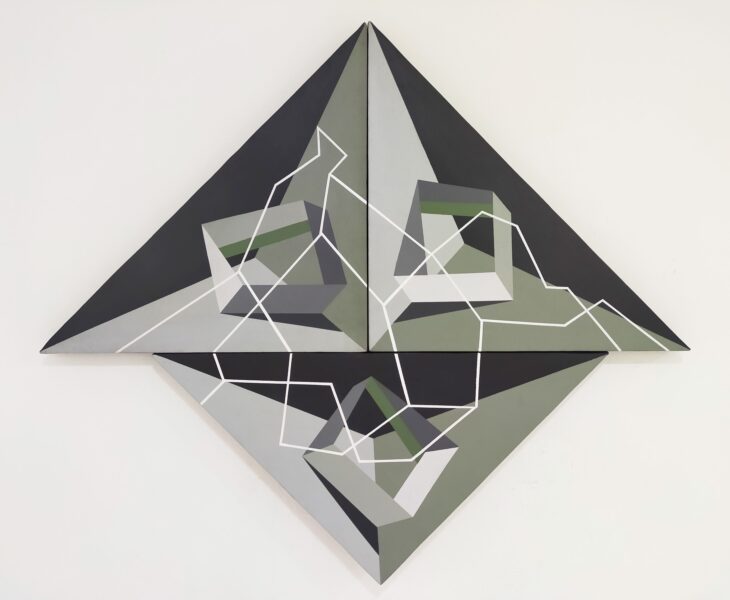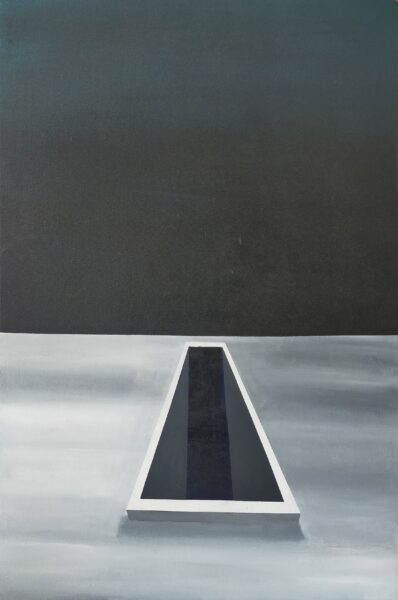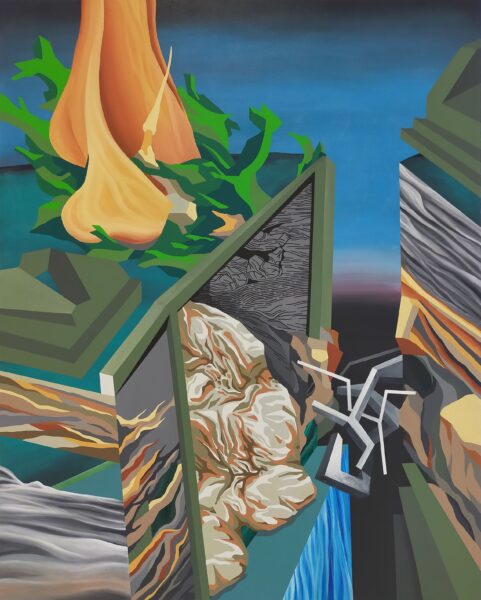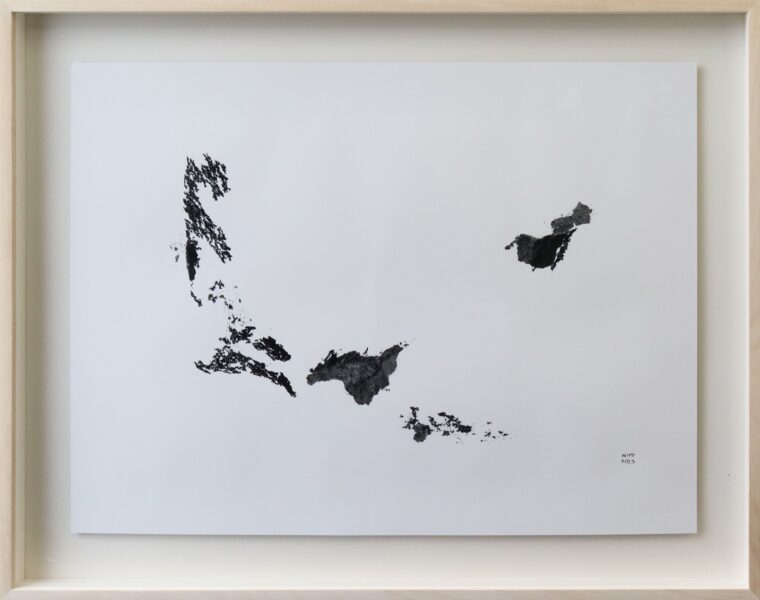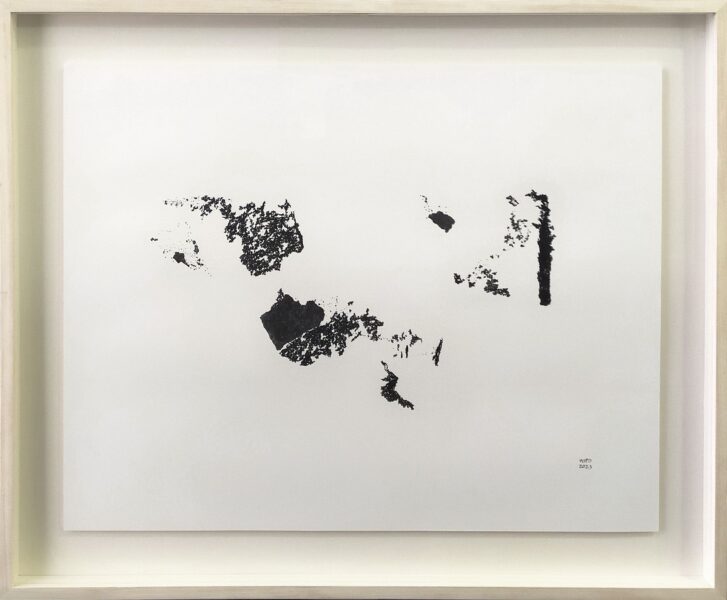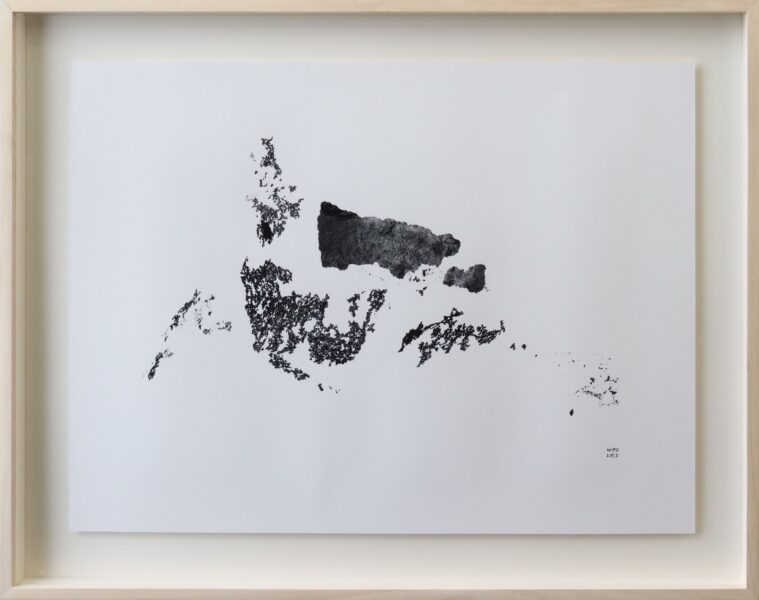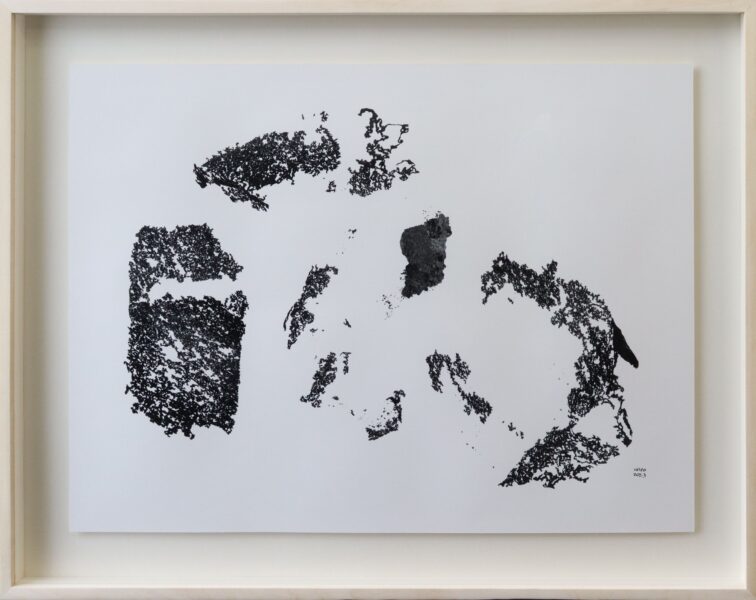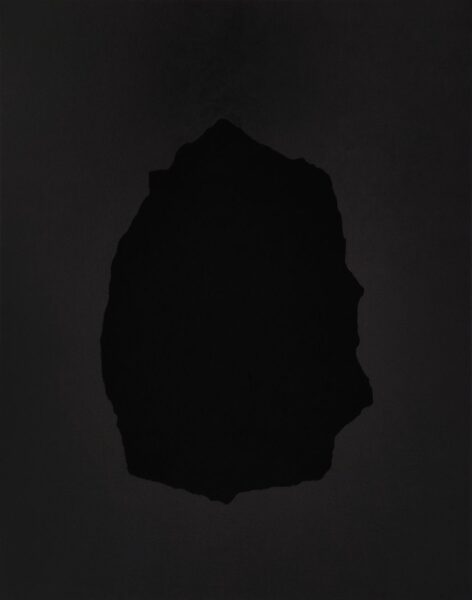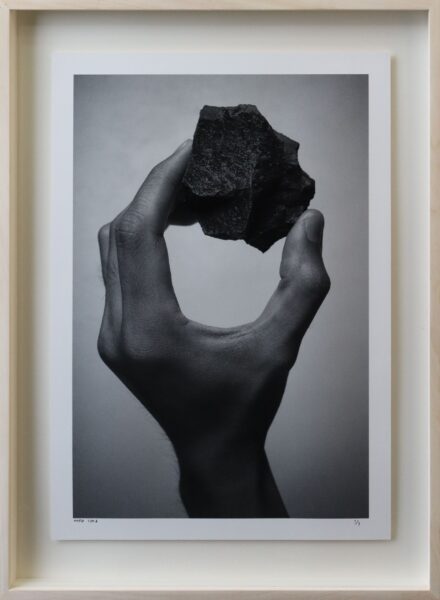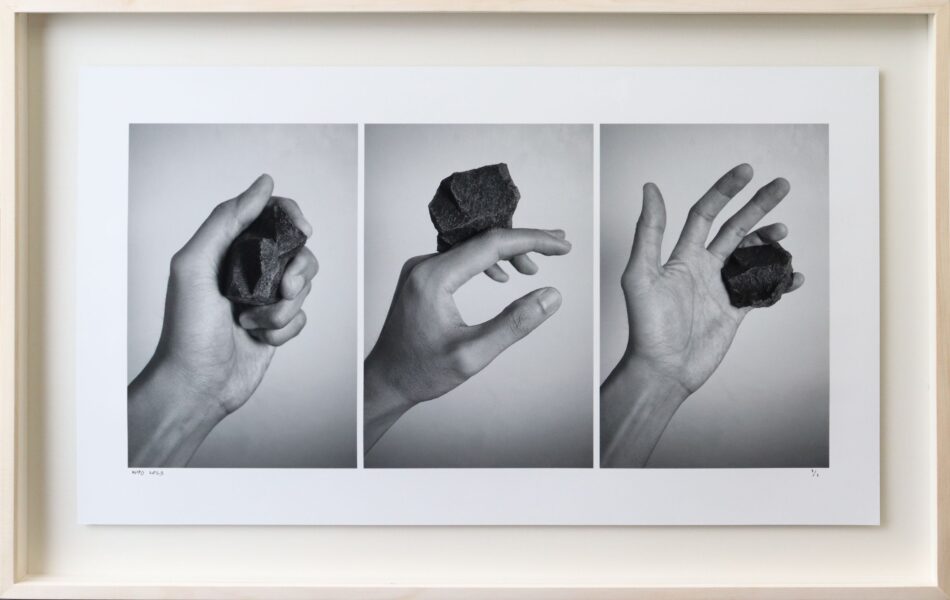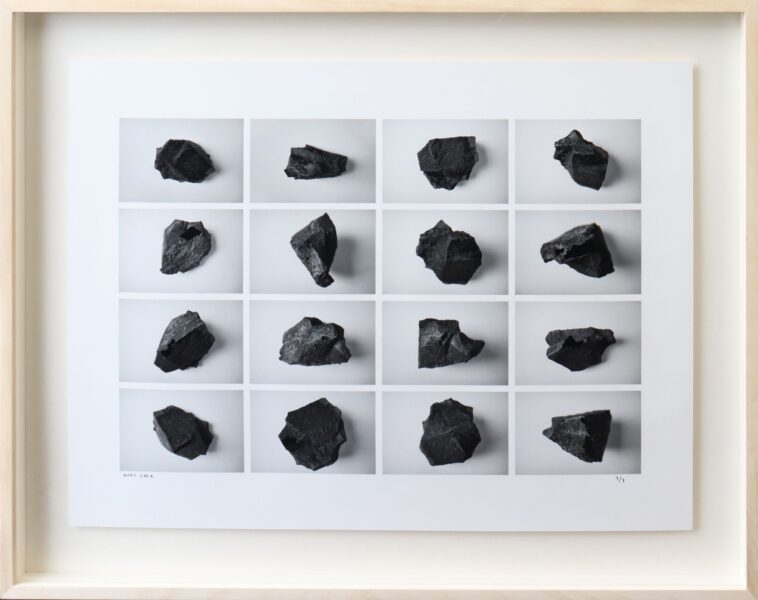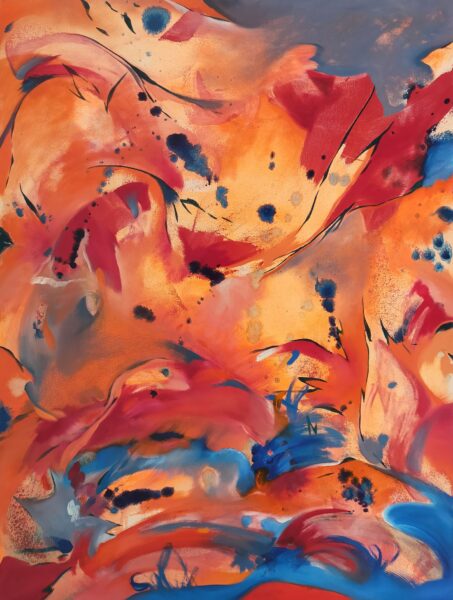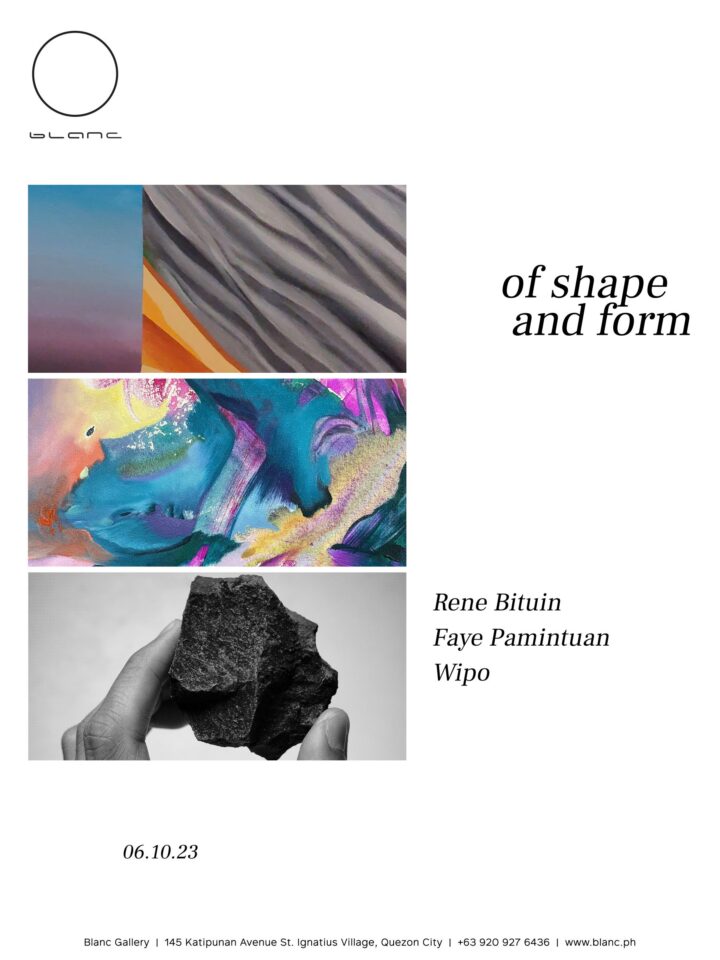
OF SHAPE AND FORM
Where does art come from, and how do we make it? It is a simple question and yet one of the most complex inquiries in contemporary art. To understand the process of art-making, we must remember two of its basic elements: shape and form. Linked by the desire to recognize the influence of memory in the course of shaping and forming an object, the works of Rene Bituin, Faye Pamintuan, and Wipo in this exhibition are anchored in dissecting the past as one trudges into the present.
Past works from Bituin’s studio are transformed into new paintings that expand and amplify narratives that have been previously set. In doing so, the artist does not only recall his motivation and mindset in producing them but more in assessing his studio practice through the life of a painting. Re-working on them, Bituin compares it to “killing and resurrecting” an artwork and refining the way it would be perceived in the world. What used to be significant but almost barren compositions have now become subdued grounds, which encourage an almost microscopic viewing. Rejecting the idea of discarding materials and objects, Bituin reconfigures the works and resurrects the meaning of a painting as it is formed and reformed.
Drawn to memory as one of the precursors in her studio practice, Pamintuan revels in the potential of an image in telling stories and continuing a life of its own through interventions in the environment and settings where it has been placed. In this exhibition, photographs are reference points in the artist’s work as she attempts to make sense of her identity through family photos that have been damaged by flood. In one of the photos, an image of hands holding pink balloons hints at a debutante ball, a rite of passage that seems to have lost its relevance today. Washed away by the damage, the faces of the people in the image are unknown. She then re-created versions of what she thinks had happened and depicted instead the supposed energies and tensions that might have built up on the actual day that the image was captured. This undertaking is essential in assessing the malleability of memory and our dependence on images to represent it. To understand ourselves, we must look more into what is not seen and beyond what has been presented.
On the other hand, Wipo’s works in this exhibition begin with a single object, a rock from Mt. Pokis in Northern Luzon that the artist took while hiking. It is then photographed several times from different angles to gain perspective in the way objects somehow configure memory and vice versa, building on an abstract visual form that Wipo refers to as “islands”, a place of treasured memories. At the same time, he ties the act of collecting to our yearning to contain memories in a vessel, something that we can see, hold, and experience as we relive the past. Arguing that memory has no color and only a perception of cognitive constructs, he paints a silhouette of the same rock using Musou Black, which absorbs almost 99.4% percent of visible light to capture the essence of remembering through its shape. This way, the artist examines the blurring lines between memory and imagination and rethinking the factors that impact our consciousness as we are driven by the task to remember.
– Gwen Bautista
Works
Documentation
